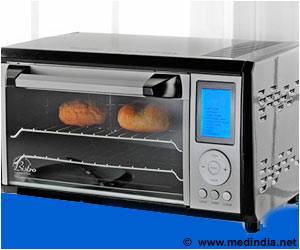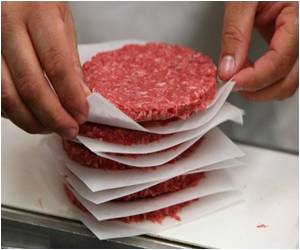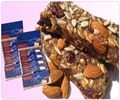Low calorie and better Healthy Eating Index (HEI) score was found in consumers of frozen meals in comparison to quick service restaurants (QSR) meals as revealed in the new analysis of data.

"The analysis shows consumers of frozen meals come a little closer to meeting Dietary Guidelines for Americans than consumers of quick service restaurant meals, and they do it with 253 fewer calories a day," said Dr. Victor L. Fulgoni, co-author of the analysis and vice president of Nutrition Impact, LLC.
Specifically, the analysis revealed that those who consumed frozen meals, when compared to those who consumed QSR meals, had significantly:
- lower calorie intake (2073±51 kcal/d frozen meal consumers vs 2326±20 QSR consumers)
- higher total Healthy Eating Index (HEI) score (53.0±1.5 frozen meal consumers vs 44.4±0.4 QSR consumers)
- higher intakes of total vegetables (3.4±0.1 frozen meal consumers vs 2.9±0.03 QSR consumers)
- higher intakes of greens and beans (1.7±0.2 frozen meal consumers vs 0.9±0.04 QSR consumers)
- higher intakes of whole grains (2.9±0.3 frozen meal consumers vs 1.8±0.1 QSR consumers)
- higher intakes of total protein foods (4.4±0.1 frozen meal consumers vs 4.1±0.03 QSR consumers)
- lower intakes of refined grains (6.6±0.4 frozen meal consumers vs 5.4±0.1 QSR consumers)
- lower intakes of empty calories (13.1±0.5 frozen meal consumers vs 9.9±0.2 QSR consumers)
The Healthy Eating Index (HEI) is a benchmark to evaluate the quality of calories consumed, and is recognized as a measure of diet quality in terms of conformance to Federal dietary guidance. It is used to monitor the quality of American diets; to examine relationships between diet and health-related outcomes and between diet cost and diet quality; to determine the effectiveness of nutrition intervention programs; and to assess the quality of food assistance packages, menus, and the U.S. food supply. More information about HEI is available at http://www.cnpp.usda.gov/HealthyEatingIndex.htm.
As the world's leading nutrition, health and wellness company, Nestlé is committed to working with nutrition, health and wellness professionals to help consumers enjoy meals they love while also meeting US Dietary Guidelines. Balance Your Plate with Nestlé is an educational program that highlights the important role frozen prepared foods can play in helping Americans meet US Dietary Guidelines and MyPlate recommendations for healthy eating patterns. Frozen, ready-made entrées are a source of pride for Nestlé. They are freshly made and simply frozen. Nestlé cooks prepare a wide variety of frozen dishes with care, making key ingredients – like pasta for our iconic lasagna or macaroni and cheese – from scratch. Then the food is frozen to help lock in nutrients and provide convenience for easy enjoyment at home or at work. The company also works continually to improve the nutritional profiles of its products by featuring positive nutrients such as whole grains, calcium, Omega-3s and antioxidants and by reducing nutrients like fat and sodium.
Source-Eurekalert
 MEDINDIA
MEDINDIA



 Email
Email










